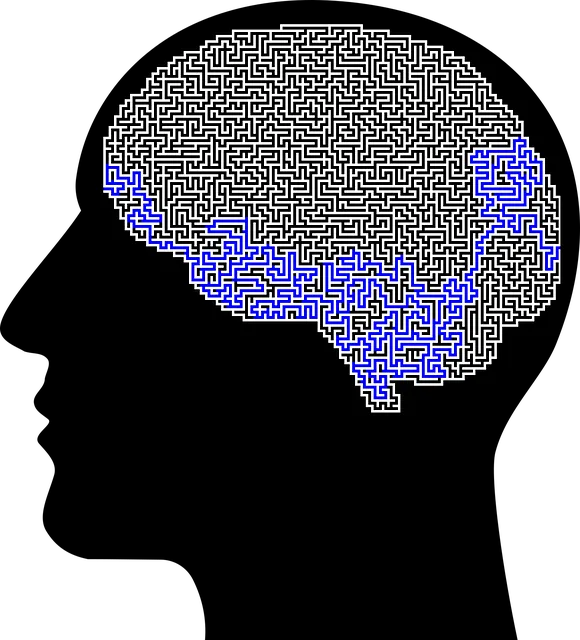The Lafayette Kaiser Permanente mental health center advocates for positive thinking as a powerful tool for improving mental well-being and life satisfaction. Through tailored exercises incorporating Mind Over Matter principles, they help diverse populations cultivate optimism, reframe negative experiences, and reduce stress, anxiety, and depression. Integrating positive thinking into daily routines, combined with social skills training and cultural sensitivity, fosters healthier interactions and emotional connections. The center promotes self-care, resilience, and long-term mental well-being by offering practical strategies like affirmations, gratitude practices, and challenging negative thought patterns. Measuring success and maintaining these habits is crucial for personal growth, with peer support and resources enhancing well-being across the industry.
Positive thinking exercises are transforming lives, especially through the pioneering efforts of institutions like the Lafayette Kaiser Permanente Mental Health Center. This article explores the profound impact of positive thinking on mental well-being and how centers such as Lafayette Kaiser Permanente are leading the way in promoting it. We’ll guide you through designing tailored exercises for diverse audiences, integrating positivity into daily life, and measuring the success of these practices.
- Understanding Positive Thinking and its Impact on Mental Well-being
- The Role of Lafayette Kaiser Permanente Mental Health Center in Promoting Positive Thinking
- Designing Effective Positive Thinking Exercises for Different Populations
- Integrating Positive Thinking into Daily Routines: Practical Strategies
- Measuring Success and Sustaining Positive Thinking Habits
Understanding Positive Thinking and its Impact on Mental Well-being

Positive thinking is a powerful tool that can significantly impact mental well-being and overall life satisfaction. It involves cultivating optimistic thoughts and reframing negative experiences into positive ones. This simple yet profound shift in perspective has been shown to reduce stress, anxiety, and depression, fostering a sense of resilience and happiness. At the Lafayette Kaiser Permanente mental health center, they emphasize the importance of understanding that positive thinking is not about ignoring life’s challenges but rather approaching them with a hopeful mindset.
By integrating positive thinking exercises into daily routines, individuals can enhance their ability to manage mood and navigate difficult situations. This practice encourages self-care routine development for better mental health, where one learns to challenge negative thought patterns and replace them with more constructive ones. Moreover, it complements Social Skills Training by fostering healthier interactions and improving emotional connections with others, ultimately contributing to a more fulfilling life.
The Role of Lafayette Kaiser Permanente Mental Health Center in Promoting Positive Thinking

The Lafayette Kaiser Permanente Mental Health Center plays a pivotal role in promoting positive thinking and well-being within its community. This renowned mental health center has been at the forefront of providing comprehensive care, focusing on not just treating mental health issues but also empowering individuals to cultivate resilience and optimism. Through various programs and initiatives, they offer effective tools for stress management, communication strategies, and trauma support services, all designed to enhance people’s ability to embrace a positive mindset.
By fostering an environment that encourages open dialogue and self-reflection, the center enables individuals to navigate life’s challenges with greater equanimity. Their expertise lies in guiding people through the process of healing and growth, ensuring they develop effective coping mechanisms and healthier ways of thinking. This holistic approach not only addresses immediate concerns but also equips individuals with lifelong skills to maintain positive thinking even in the face of adversity.
Designing Effective Positive Thinking Exercises for Different Populations

Designing effective positive thinking exercises requires tailoring them to diverse populations, considering both individual needs and cultural contexts. At Lafayette Kaiser Permanente mental health center, we’ve found success by incorporating Mind Over Matter principles that resonate across demographics. For example, while mindfulness meditation may be universally beneficial, enhancing sessions with culturally sensitive elements can significantly improve engagement.
For older adults, exercises focusing on reminiscence and positive memories might tap into a wealth of emotional intelligence and life experience. Conversely, younger individuals may benefit from activities fostering resilience through stress management techniques. Leveraging Cultural Sensitivity in Mental Healthcare Practice ensures that everyone feels welcomed and supported, promoting open exploration and growth.
Integrating Positive Thinking into Daily Routines: Practical Strategies

Integrating positive thinking into daily routines is a powerful tool for enhancing emotional well-being, as championed by the Lafayette Kaiser Permanente mental health center. This approach goes beyond mere optimism; it’s about cultivating a mindset that recognizes and leverages the positive aspects of life, even in challenging circumstances. Practical strategies include starting each day with a positive affirmation or gratitude practice, where individuals take a moment to appreciate what they have rather than focusing on what’s lacking. Additionally, engaging in activities that bring joy, such as exercise, creative pursuits, or time spent in nature, can significantly boost positive thinking and overall mental health.
The Lafayette Kaiser Permanente mental health center also emphasizes the importance of challenging negative thought patterns. By becoming aware of self-critical thoughts, individuals can reframe them into more constructive and realistic perspectives. Healthcare providers play a crucial role in this process through cultural competency training, which equips them with the skills to support patients from diverse backgrounds, reducing the Mental Illness Stigma Reduction Efforts. These strategies collectively contribute to a holistic approach to emotional well-being promotion techniques, fostering a sense of balance and resilience in daily life.
Measuring Success and Sustaining Positive Thinking Habits

Measuring Success and Sustaining Positive Thinking Habits is a crucial step in any positive thinking exercise implementation. At the Lafayette Kaiser Permanente mental health center, we emphasize tracking progress and evaluating impact to ensure the longevity of newfound optimism. This involves setting realistic goals, regularly assessing one’s mindset shifts, and celebrating small victories. By quantifying improvements through self-reflection or professional guidance, individuals can gain clarity on their mental health journey. Moreover, integrating practices like Mindfulness Meditation and Resilience Building techniques can reinforce positive thinking habits, making them an integral part of daily life.
For mental health professionals, Risk Management Planning plays a pivotal role in maintaining these habits. Regular check-ins with peers or supervisors, participation in professional development workshops, and utilizing resources specific to their field can help mitigate challenges and sustain progress. Incorporating these strategies not only supports individuals in their personal growth but also enhances overall well-being, fostering an environment where positive thinking becomes a sustainable practice within the mental health profession itself.
Implementing positive thinking exercises can significantly enhance mental well-being, as backed by the expertise of institutions like the Lafayette Kaiser Permanente Mental Health Center. By tailoring these exercises for diverse populations and integrating them into daily routines, individuals can cultivate a more optimistic mindset and sustain improved mental health habits. Measuring success involves tracking personal growth and adjusting strategies accordingly, ensuring a continuous journey towards better mental well-being.



